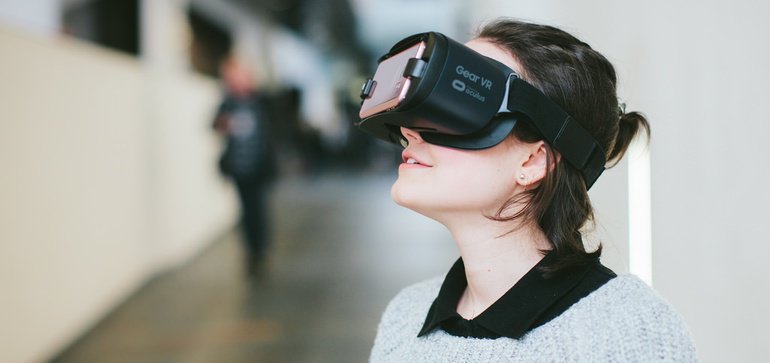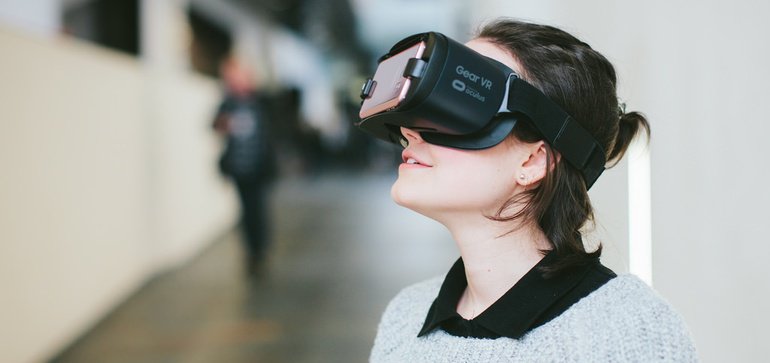
Brief:
- Shipments of augmented reality and virtual reality (AR/VR) headsets will jump 54% to 8.9 million units worldwide this year. The annual growth rate will accelerate to 67% over the next four years with shipments reaching 68.6 million in 2023, per a forecast from International Data Corp. (IDC).
- AR headset shipments will outpace those for VR devices, which have a bigger base of installations among gaming platforms. Total AR headset shipments are expected to jump 141% a year to 31.9 million units by 2023, faster than the 47% annual gain for VR headsets to 36.7 million during that period.
- In the AR headset market, standalone headsets will have a leading market share of 55% with 17.6 million units shipped in 2023, followed by tethered devices at a 44% share and screenless viewers with a less than 1% share.
Insight:
IDC’s forecast indicates that AR/VR headsets will continue to enter the mainstream, although the earliest adoption will be among enterprise users. The retail and design industries will be key users of AR headsets, the researcher predicted. After Apple and Google introduced AR development software two years ago, a variety of brands have added the technology to their smartphone apps. Retailers like Ikea, Houzz, Artemest, Anthropologie, Macy’s and Williams-Sonoma have added 3D and AR tech to their marketing mix to enhance the shopping experience. The development of AR apps for smartphones may support a crossover to AR headsets as the devices become more popular in the next few years.
Much of the development of AR headsets so far has been for commercial users. Google, which ended its Glass Explorer program in 2015, later relaunched the product as Glass Enterprise Edition for workplace uses. Microsoft and Magic Leap have touted the capabilities of their latest AR headsets, although their high-priced models are aimed at businesses.
AT&T this week will start selling the Magic Leap One AR headset, which retails for $2,295, at a handful of stores. The high price likely will be off-putting to many consumers, although Magic Leap has worked to build out content for its device, including partnerships with the NBA, CNN and business video service Cheddar. Wayfair, the online marketer of home furnishings, last year released an interior design app called Wayfair Spaces that works with the Magic Leap One. The app lets shoppers see professionally designed rooms and helps them visualize products in their home.
The consumer market for AR headsets likely will get a boost when Apple releases a device as soon as this year. The first generation of its AR glasses will display digital images on a real background seen through its lenses, while the processing power, internet connection and location services will come from an iPhone, Ming-Chi Kuo, an analyst with KGI Securities, said in a report. Other consumer AR glasses, like Focals by North, already are on the market, while the prototypes of Project Aurora and Nreal Light were demonstrated at CES 2019.

